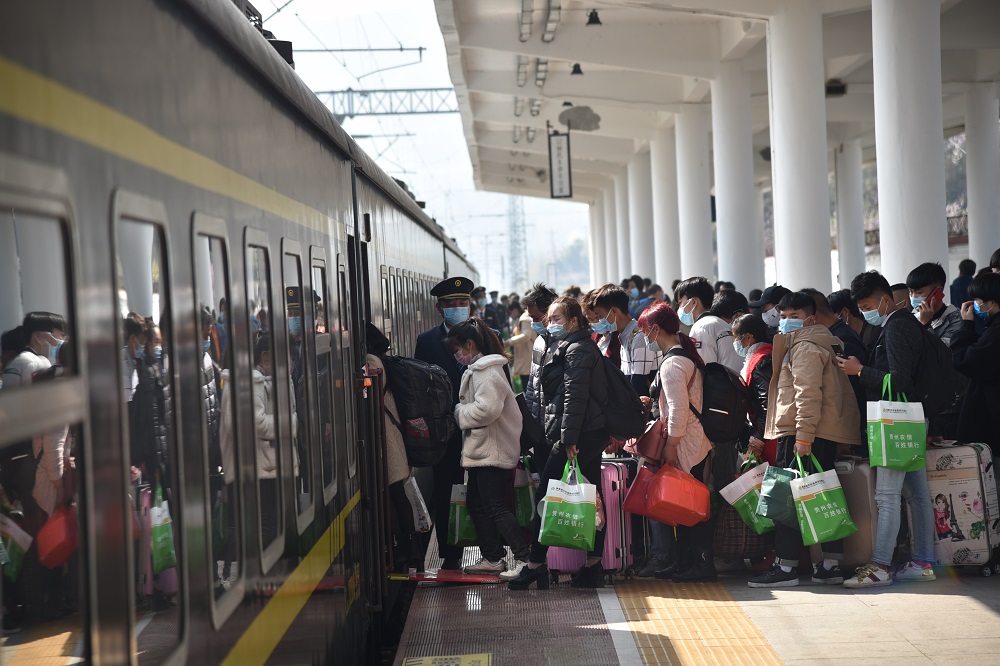Creating jobs, unemployment relief essential to 200m migrant workers


Currently, the major goal in stabilizing the job market is to ensure long-term steady employment of over 200 million migrant workers who can be easily affected by external shocks like the COVID-19 epidemic. Creation of new jobs in the public service sector and a broader coverage of unemployment relief services can be one solution.
It's difficult to evaluate the state of employment nationwide without sufficient data and information. The surveyed urban unemployment rate was 5.9 percent in May, said the National Bureau of Statistics.
But statistical samples from migrant workers may be inadequate and the rural labor force may be insufficiently represented.
The central government has made safeguarding employment a top priority among all targets it aims to achieve in maintaining people's livelihoods, and efforts to help companies stabilize job positions have borne fruit.
In addition, many companies did not immediately cut jobs during the epidemic because they thought the impact would be short term. Instead of large-scale layoffs, they opted for milder methods including paid leave, reduced work time and salary cuts. This has allowed such companies to keep their workers employed. Some local governments have also taken restrictive measures to prevent companies from shedding jobs.
Besides, some employees including migrant workers, temporary staff, hourly laborers and individual business operators temporarily left the workplace during the peak of the contagion in China in order to wait and see if things would improve. Such workers were not included in the unemployment survey.
The actions of governments and companies have been based on expectations that the novel coronavirus impact will be short term. Many reckon that when the epidemic comes under control and the global economy shows signs of returning to normal, the current employment and unemployment problems will disappear and all will be functional once again.
Epidemic control and China's trade relations with the rest of the world are likely to affect long-term strategic choices for Beijing, including moves impacting employment. However, it seems that among all uncertainties the contagion might bring to the economy and society, one thing is clear-the virus will not completely vanish in one or two years. Worse, it may come back from time to time. Besides, the deteriorating Sino-US trade relationship will directly damage trade and China's external economic links and pose challenges to economic growth and employment.
The slow economic recovery will become a new norm. Therefore, a long-term strategy for employment should be taken into consideration.
So, what's the crucial element in stabilizing the Chinese job market over the long run? The answer is migrant workers. China has more than 200 million migrant workers who work in urban regions for long periods. They often don't have stable jobs or incomes, and lack social security and unemployment insurance. They are easily impacted by external changes and face great unemployment risks. We therefore need to help them with various responsive measures in the face of such challenges to ensure stable employment of this group.
One solution is to create more jobs. Under the current economic structure, most of the employment potential has already been explored. It's more important to create new job opportunities. There are weak links in many sectors of social development partly resulting from a lack of investment in areas such as human resources.
For example, more workers are needed in public service, preschool education and elder care in rural areas. Helping migrant workers enjoy the same civic rights as their urban peers will generate many job opportunities. This requires the reform of the household registration system and the provision of basic public services and housing, which will boost urban construction and renovation as well as employment.
If migrant workers settle down in cities, this will also influence the economy, consumption and other segments. In this regard, safeguarding employment should be linked with socioeconomic development and shoring up weak points.
On the other hand, unemployment relief efforts-unemployment insurance, occupational training and other public services-should cover a larger scope of people, especially migrant workers. If more jobless people can benefit from the unemployment security network, we can find ways to prevent them from falling into poverty.
The writer is a professor at the School of Public Affairs of Zhejiang University in Hangzhou, Zhejiang province.




































